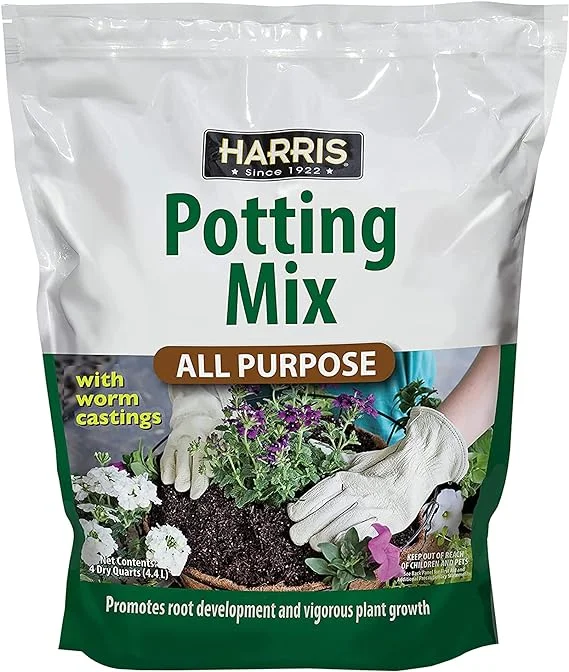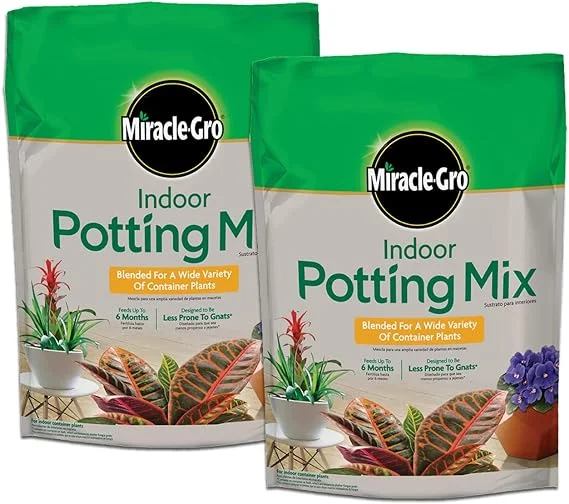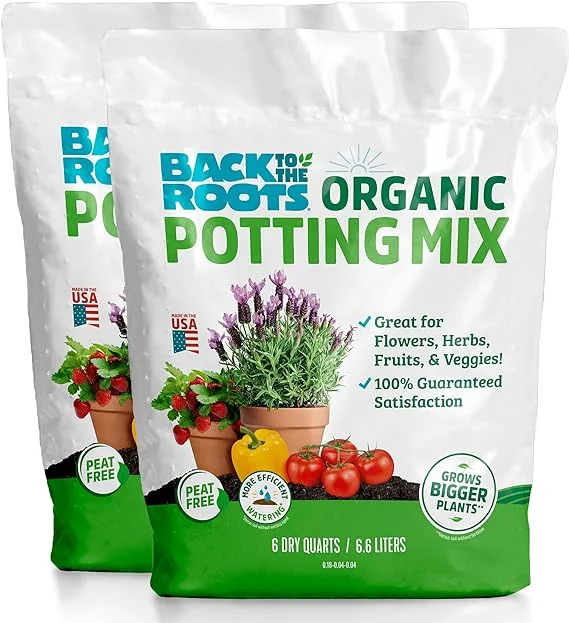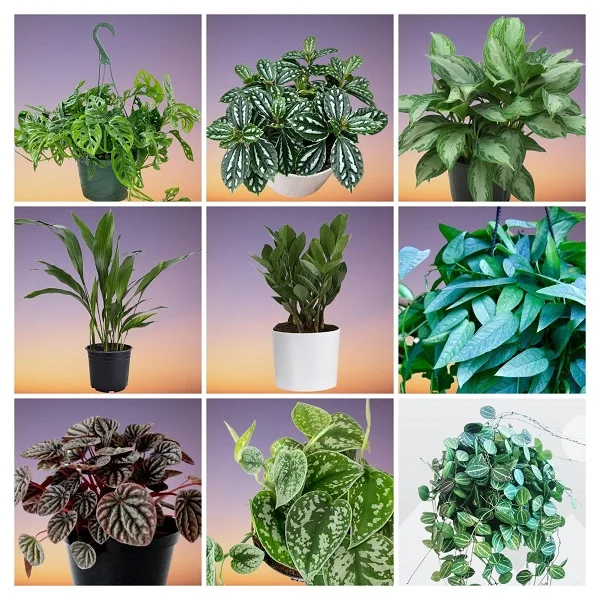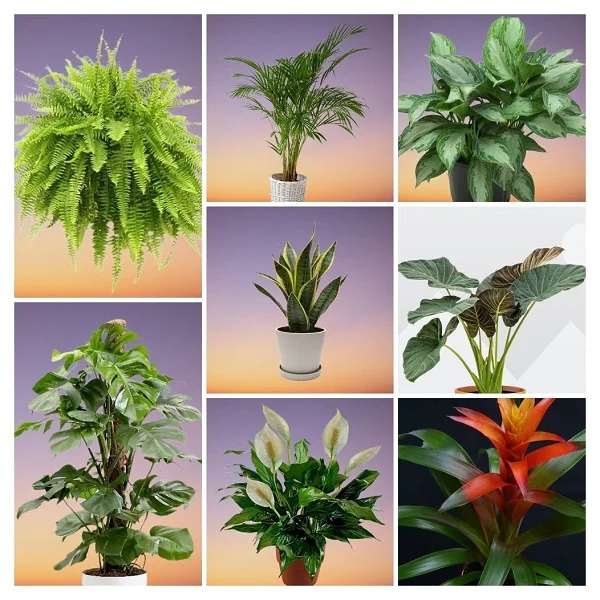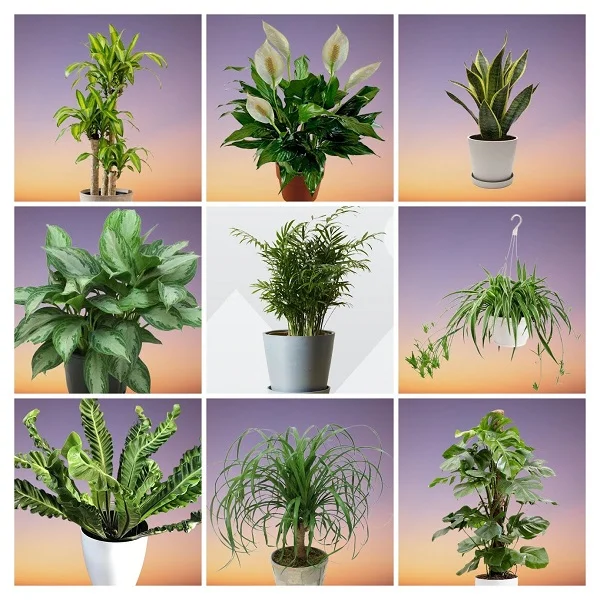Dracaena reflexa (Song of India Plant) Indoor Care; Watering, Light, Propagation, Problems
Some links in this post may be affiliate links
Dracaena reflexa (Song of India Plant) thrives in bright indirect light, warm and humid conditions, and consistently moist, rich, well-drained soil coupled with fortnightly feeding in the growing season.
Song of India Plant also called Pleomele or Song of Jamaica is one of the spectacular Dracaena varieties and bears yellow-banded, short, narrow, pointed, green leaves, arranged spirally at the end of the branches. The stems are weak and about 3 feet high.
Unlike its cousin Dragon Blood Tree (Dracaena draco) which is tree-like, Song of Jamaica is a compact plant, ideal for the limited spaces in the home or office.
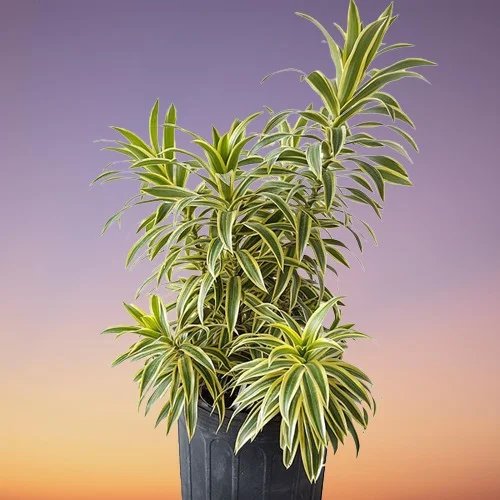
Botanical name: Dracaena reflexa
Synonym: Pleomele reflexa
Family: Asparagaceae
Subfamily: Nolinoideae
Common names: Song of India Plant, Pleomele, Song of Jamaica
Origin
Dracaena reflexa is native to Mozambique, Madagascar, Mauritius and other nearby islands of the Indian Ocean.
Is Dracaena reflexa poisonous?
Yes, Dracaena reflexa is toxic to both humans and pets as outlined by ASPCA. The leaves contain a substance which is toxic. If ingested they can cause vomiting, diarrhea, drooling, loss of appetite and depression. Keep the plant away from children, cats, dogs, and other pets to avoid any mishaps.
Where to Buy
If you are looking to acquire Song of India Plants, you may obtain these plants online from Etsy (Link to Etsy).
How to care for Dracaena reflexa indoors
To care for Dracaena reflexa indoors, provide bright indirect light (filtered light), warmth of 16-270C, humidity of 60-70% and consistently moist, rich, well-drained soil coupled with fortnightly feeding during the growing season.
Song of India Plant needs regular pruning to keep the plant neat, to minimize pests and diseases and to encourage a bushy growth. It has no need for frequent repotting as it grows best when slightly root-bound. Keep reading for more on these growing conditions and how to achieve them.
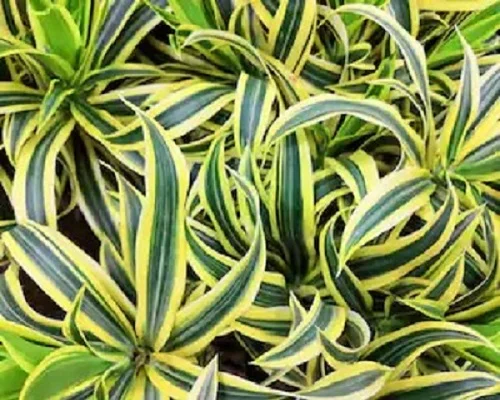
Watering
How often should I water Dracaena reflexa?
Do not water your Dracaena reflexa on a schedule to avoid either overwatering or underwatering both of which can be disastrous to the plant.
Water your Dracaena reflexa thoroughly in spring and summer until water drips throught the drainage hole. Allow the top 1-2 inches of soil to dry out between waterings. Keep soil consistently moist but not soggy to prevent rotting, drooping, yellowing and leaf loss.
Decrease watering in fall and winter as growth is reduced at this time. Maintain the soil slightly moist but never allow the soil to dry out completely to avoid wilting and drooping leaves, browning leaf tips and curling edges.
Avoid soggy soil as it can lead to root-rot and death of the plant; use a pot with a drainage hole and well-draining soil. Always discard excess water from the bottom saucer to prevent sogginess.
Use room temperature water to avoid shocking this tropical plant as it can cause stunted growth and leaf drop. Make sure the water is free of chlorine, flourides and other chemicals to prevent brown leaf tips and edges.
Light Requirements
Can Song of India Plant tolerate low light?
Song of India Plant grows best in bright indirect light (dappled light); position it infront of a large, brightly-lit, sunless window. Keep it away from direct sunlight to prevent scorching of the leaves; brown, crispy leaves.
Tough it can survive in lower light conditions, the variegation develops best under bright light. In too low light, the plant becomes leggy and leaf colors fade. You may grow the plant under grow lights if the natural light is not adequate.
Rotate the pot regularly to ensure that the plant receives light on all sides for even growth.
Temperature & Humidity
Pleomele prefers a warmth of 16-270C. Keep it away from drafts to avoid temperature flactuations which can lead to reduced growth, drooping, wilting, yellowing, leaf drop, and brown leaf tips and edges.
Song of India Plant performs best in a humidity of 60-70%. Brown leaf tips is an indication of low humidity. To increase humidity, set the pot on a wet pebble tray or use a humidifier. Do not mist the plant and maintain good air flow to minimize fungal diseases.
You may also grow the plant in a well-lit bathroom, kitchen, laundry area and other humid areas in the home. Dracaena reflexa is one of the favorite plants for the bathroom on account of its affinity for humid conditions.
Fertilizer
What is the best fertilizer for Song of India Plant?
Feed your Song of India Plant with a balanced, water-soluble fertilizer every 2-3 weeks in spring and summer for a lush growth.
Withhold feeding in fall and winter as growth is minimal. Feeding at this time can lead to fertilizer burn which is indicated by brown leaf tips and edges.
Occasionally flush out accumulated salts by running a stream of water through the soil, until the water comes out through the drainage hole.
Potting Soil
What is the best soil mix for Dracaena reflexa?
The best soil for Dracaena reflexa is a light, well-draining soil that retains moisture without becoming waterlogged. A mix of 50% potting soil, 25% perlite (for drainage), and 25% peat moss or coco coir (for moisture retention) is perfect for this plant.
Repotting
Repot your Song of India Plant at the beginning of the growing season (spring to early summer), when the roots begin to grow through the drainage holes; it prefers to be slightly root-bound.
Use a pot 1 size larger that has a drainage hole to prevent the soil from getting soggy. Never allow the roots to sit in soggy soil as it can lead to root-rot. Check out these pots with drainage holes on Amazon.
Pruning & Maintenance
Pruning Song of India Plant involves:
- Removal of dead and yellow leaves to maintain the plant neat and reduce pest and disease infestations.
- Cutting back the stems to encourage a bushy and compact growth. New stems will sprout below the cut. The foliage emanating from the pruning, can be used to propagate new plants.
Regularly clean the leaves by damp-wiping with a soft cloth to get rid of dust as well as discourage pests infestation.
Dracaena reflexa Propagation
Song of India Plant is propagated from stem cuttings at the beginning of the growing season (spring to early summer) when the plant is actively growing.
1. Propagating Song of India Plant from stem cuttings in soil
- Take 4-6 inches long stem cuttings from a healthy plant and ensure each cutting has some leaf nodes as this is where new growth will come from.
- Dip the lower cut-end of the cuttings in a rooting hormone to hasten rooting.
- Fill a rooting container with free-draining rooting soil. Lightly moisten the rooting mix.
- With a pencil or similar object, make a hole in the moist rooting mix. The hole should be slightly wider than the diameter of the cutting.
- Insert 2-3 inches of the lower cut end of the cutting in the previously made hole in the moist rooting mix and lightly firm the soil around the cutting.
- Cover the container with clear polythene sheet to increase humidity for faster establishment.
- Place the set up in a warm, well-lit place away from direct sunlight to avoid cooking the plants.
- Maintain the soil moist through out until the new plants are well established after which you can begin routine care.
2. Propagating Song of India Plant from stem cuttings in water
- Take 4-6 inches long stem cuttings from a healthy plant and ensure each cutting has some leaf nodes as this is where new growth will come from.
- Place the cuttings in a jar of plain water or in a propagation station. Ensure that at least one leaf node is submerged, but keep the leaves above water.
- Position the set up in a warm spot under bright indirect light and change the water every 3-5 days to prevent bacterial growth.
- Rooting should occur in 3-6 weeks. Once the roots are about 2-3 inches long, prepare to transfer the cuttings into soil.
- Select a small pot and ensure that the pot has a drainage hole to prevent the soil from getting soggy to avoid rotting.
- Fill the pot with well-drained soil and moisten the soil slightly.
- Make a hole in the center of the pot. Ensure that the hole is slightly wider than the root base of the new plant.
- Place the new plant in the previously made hole and lightly firm the soil around the base while taking care not to bury it too deep.
- Position the set up in warm, well-lit spot and maintain the soil moist until the new plants are well established after which you can begin routine care.
Related Content: How to Propagate Dracaena Plants by 4 Easy Methods.
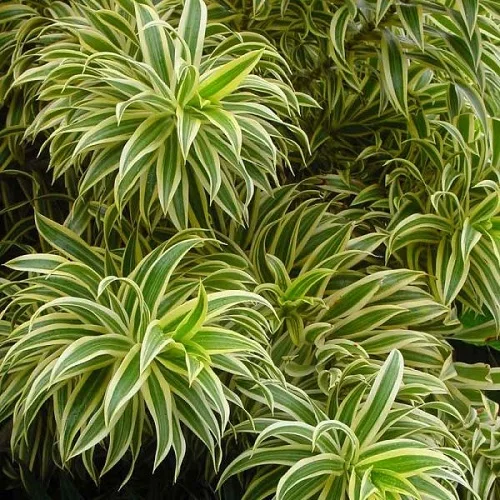
Dracaena reflexa Problems & Remedies
Song of India Plant problems are yellowing leaves, brown leaves, brown leaf tips and edges, plant dying, diseases, and pests among others. Keep reading for more on these problems and how to fix them.
Yellowing leaves
Why are the leaves on my Song of India Plant turning yellow?
The main causes of yellow leaves on your Song of India Plant are too little light, inconsistent watering, soggy soil, temperature stress or aging.
How to fix it
Too little light: Position the plant in bright indirect light or use a grow light if you do not have enough light in your home.
Inconsistent watering: Do not water on a schedule; water when the top 1-2 inches of soil dry but do not let the soil dry out completely for long.
Soggy soil: Use well-draining soil and a pot that has a drainage hole.
Temperature stress: Keep the plant away from drafts emanating from AC units, heat sources, windy doors, drafty windows and others.
Aging: As the plant matures, it sheds the lower leaves. Each lower leaf turns yellow and dries leaving a crown of leaves on top of the cane-like stem.
Brown leaves
Why are the leaves on my Song of India Plant turning brown?
Some of the causes of brown leaves on your Song of India Plant are inconsistent watering, soggy soil or extreme temperatures.
How to fix it
Inconsistent watering: Do not water on a schedule. Water when the top 1-2 inches dry out. Never allow the soil to dry out completely.
Soggy soil: Use a pot with a drainage hole and well-draining soil.
Extreme temperatures: Keep the plant away from sources of drafts like AC units, drafty windows, heat sources, windy doors and others.
Drooping leaves
Why is my Song of India Plant drooping?
Drooping leaves on your Song of India Plant are caused by underwatering, extreme temperatures or direct sunlight.
How to fix it
Underwatering: Do not allow the soil to dry out completely; water when the top 1-2 inches of soil feel dry.
Extreme temperatures: Avoid exposing the plant to hot or cold air from heating vents, windy doors, AC units, stoves and others.
Direct sunlight: Position the plant away from direct sunlight or use a light curtain to filter the sunshine.
Brown leaf tips and edges
Brown leaf tips and edges on Song of India Plant are caused by dry air, underwatering, salts buildup or cold drafts.
How to fix it
Dry air: Set the pot on a wet pebble tray or use a cool mist humidifier to elevate humidity.
Underwatering: Water when the top 1-2 inches of soil feel dry to the touch.
Salts buildup: Use rain water or filtered water to water the plant. Regularly flush out salts from the soil.
Cold drafts: Keep the plant away from cold drafts like windy doors, drafty windows, AC units and others.
Plant dying
Song of India Plant is dying due to root-rot which is promoted by soggy soil. The disease is characterized by yellowing and wilting of the leaves which is rapidly followed by browning and plant collapse.
How to revive a dying plant
- Carefully slip the plant out of its pot and inspect the roots.
- Trim brown-black mushy roots and treat the healthy roots with a copper-based fungicidal solution as indicated on the label.
- Disinfect the pot with the fungicidal solution or use a fresh pot to repot the plant in fresh, well-draining soil.
- Do not water the plant immediately; keep it dry for 5-7 days before you resume watering.
- Use a pot with a drainage hole and well-draining soil to prevent the soil from getting soggy.
- Decrease watering in fall and winter as growth is slowed at this time; keep the soil slightly moist.
Pests
Common pests of Song of India Plant are mealybugs, scale insects and spider mites.
How to fix it
- Regularly check underneath the leaves for these pests and take timely control measures.
- Isolate the affected plant to prevent spread to the other plants and treat it with neem oil or insecticidal soap as per the manufacturers' recommendations.
- Regularly clean the leaves by damp-wiping with a soft cloth to keep the pests away.
- Keeping the plant well pruned reduces the hiding and breeding places for these pests.
You liked it? Share on social media.
Related Content
Amazon Associates Disclosure
Homeplantsguide.com is a participant in the Amazon Services LLC Associates Program, an affiliate advertising program designed to provide a means for sites to earn advertising fees by advertising and linking to amazon.com.
